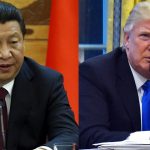While diverse voices from neoconservative pundits in Washington to Iranian state-run media have been having a field day comparing the pro-democracy protests in Egypt to the ousting of the Shah of Iran in 1979, Geneive Abdo, director of the Iran Program at the National Security Network and The Century Foundation, has a piece up on Foreign Policy’s Middle East Channel questioning the validity of the comparison.
The voices making comparisons with 1979 have failed to understand the seeds of the Islamic revolution, nor do they seem to recognize that today’s Egyptian uprising is a non-ideological movement. As someone who conducted research on the Brotherhood in Egypt for many years, I predicted 10 years ago that the only alternative to Mubarak would be a more democratic state run by the Brotherhood; I have been surprised at just how minimal a role the Brotherhood has played so far — not only in the street movement, but in the consciousness of the young people in Tahrir Square.
Abdo points to grievances voiced by pro-democracy supporters which have included the corruption, cronyism, and economic stagnation under the Mubarak government. Notably absent has been any strong ideological beliefs other than a call for democracy and demands that Hosni Mubarak step down.
The Muslim Brotherhood, despite constant mention on neoconservative-aligned blogs, has had remarkably little visible presence in Tahrir Square. Indeed, the movement for democracy in Egypt may have passed by the Brotherhood.
Abdo observes:
If anything, this is a bittersweet moment for the Brotherhood. Although Mubarak appears on his way out, the movement seems to have missed the historical moment when it could have captured a powerful place in the corridors of power. That window began closing in 2005, after the Brotherhood captured 88 seats in the Egyptian parliament only to be targeted aggressively and largely suppressed by Mubarak’s security services ever since. During these intervening years, a new Egyptian generation has arisen that is more secular, more worldly, and not loyal to any particular organization or movement. Though the Brotherhood, in the long term, may still prove to have a profound role in a new Egypt; after all, the skills and tools it takes to start a revolution are rarely those needed to finish it. Ask the Mensheviks and Lenin.
Abdo concludes that while the Brotherhood may or may not have a significant role in a new government, the end of Mubarak’s thirty years in office will have long-term geostrategic consequences for the U.S. and Israel, as Egypt, in all likelihood, will seek a closer relationship with its Arab and Muslim neighbors.
Rather than reaching for false analogies between Iran of 1979 and Egypt today, Western leaders should accept the fact that any new Egyptian government is unlikely to support policies the United States has promoted for 30 years, regardless of whether the Muslim Brotherhood has a small or large share in a new government. The time has come for the West to acknowledge that Egyptian society opposes the country’s 1979 peace agreement with Israel, resents the United States’ close relationship with the Jewish state (a country most Egyptians loathe), and has been historically prepared to end the country’s reliance on U.S. aid. In fact, Mubarak’s image as a puppet of the United States has for years been a political liability.





Is it a false analogy? Compare 1789, 1917, and yes, 1979. The moderates get things started, throw out the autocrats, but then . . . Robespierre, Lenin, Khomeni. I’m hardly an expert on Egypt, so I’m not predicting the outome. But the evidence of history is that revolutions tend to get hijacked, particularly in countries where there is no tradition of self-government.